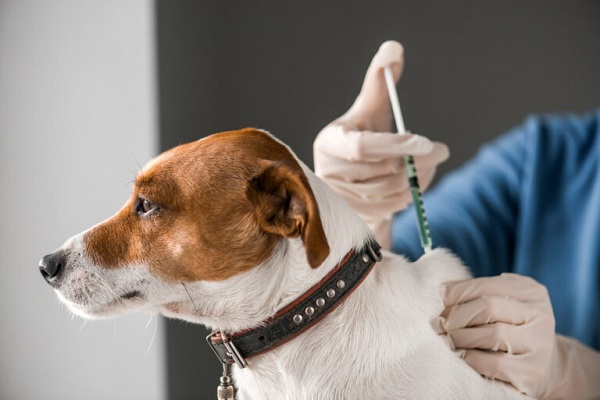
The head of the department of microbiology and parasitology, Bayero University, Kano State, Dr. Muhammad Abbas has lamented the nation’s low vaccination of dogs to achieve rabies elimination by 2030.
Speaking to journalists today (August 9, 2022) in Abuja, the vaccinologist asserted that vaccination remains the most cost-effective means of preventing, controlling and even eradicating, infectious diseases.
Recall that the World Health Organisation (WHO) 2018 introduced a new global strategic plan to eliminate dog-mediated rabies by 2030.
The vaccinologist pointed out that while some countries have acted to strengthen rabies control efforts by scaling up dog vaccination programmes, making human biologicals for post-exposure and pre-exposure prophylaxis more accessible, and engaging communities on rabies, the country is yet to intensify its efforts toward the elimination of this disease.
He said that the Global Strategic Plan set three objectives for affected countries, development partners, and key stakeholders, to effectively use vaccines, medicines, tools, and technologies that would stop dog rabies transmission and reduce the risk of human rabies deaths.
“Countries are to generate evidence-based guidance and high-quality data to measure impact and inform policy decisions and to harness multi-stakeholder engagement to sustain commitment and resources,” he said.
He said that rabies is one of the neglected tropical vaccine-preventable diseases and predominantly affects poor and vulnerable populations who live in remote rural locations.
“Vaccinating dogs is the most cost-effective strategy for preventing rabies in people. Dog vaccination reduces deaths attributable to rabies and the need for post-exposure prophylaxis (PEP) as a part of dog bite patient care.
“In Nigeria, more than 50,000 people die each year from human rabies with rabid dogs accounting for over 90 per cent of confirmed human infection.
“We are not sure of the estimated Nigerians that receive PEP each year after being exposed to animals with suspected rabies, because there are no data to this confirmation.
“Rabies PEP is close to 100 per cent effective. Rabies is fatal in more than 99.9 per cent of humans that develop the disease,” he said.
He called on the government to do more, in other to meet the Global Strategic Plan by generating accurate data to monitor the trend of disease and also intensity on awareness of rabies prevention and dog vaccination across the country.
Abbas advocated for the government to also ensure the availability of cost-effective vaccines that would be able to reach Nigerians at the right time when they need them.

